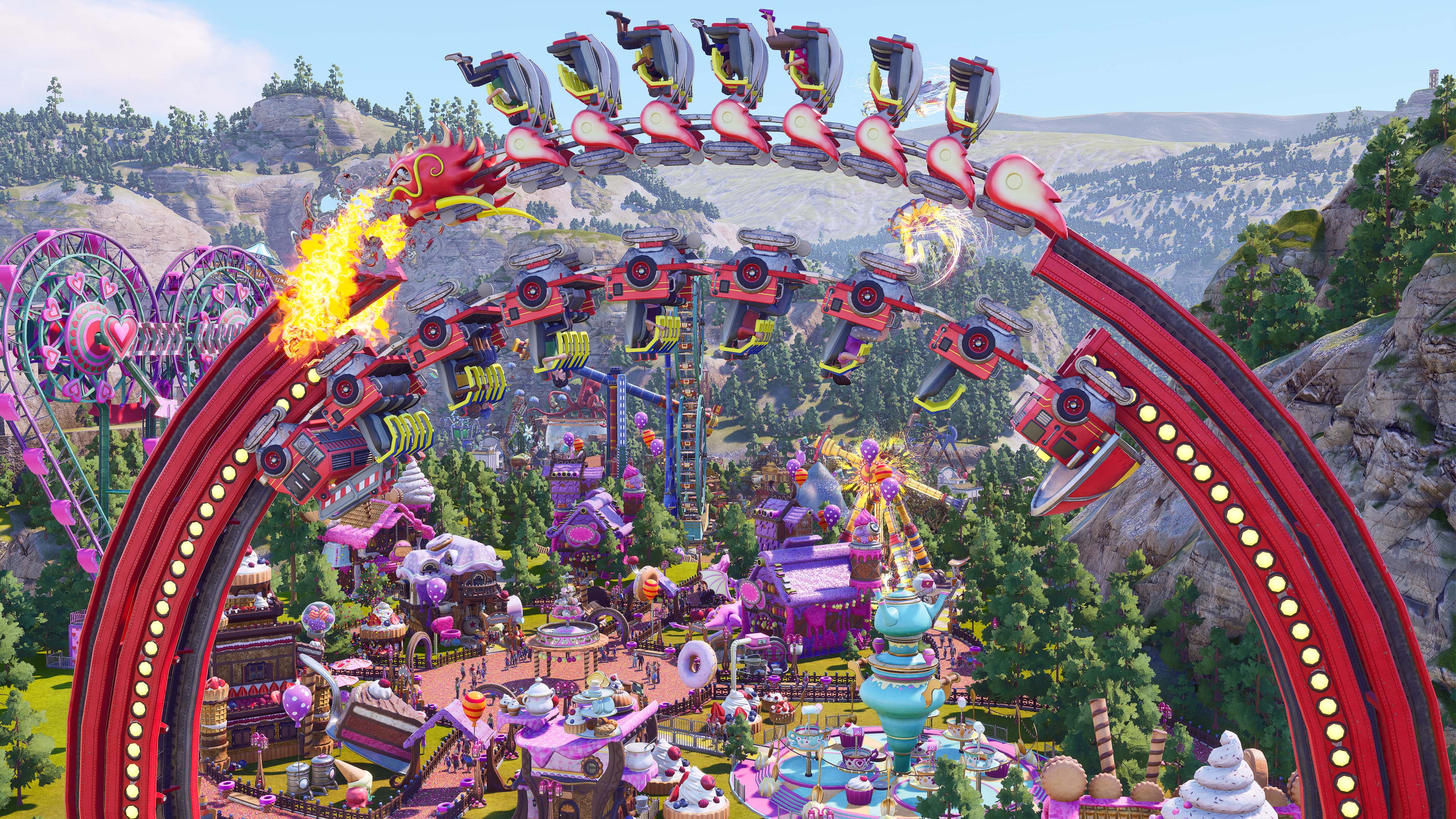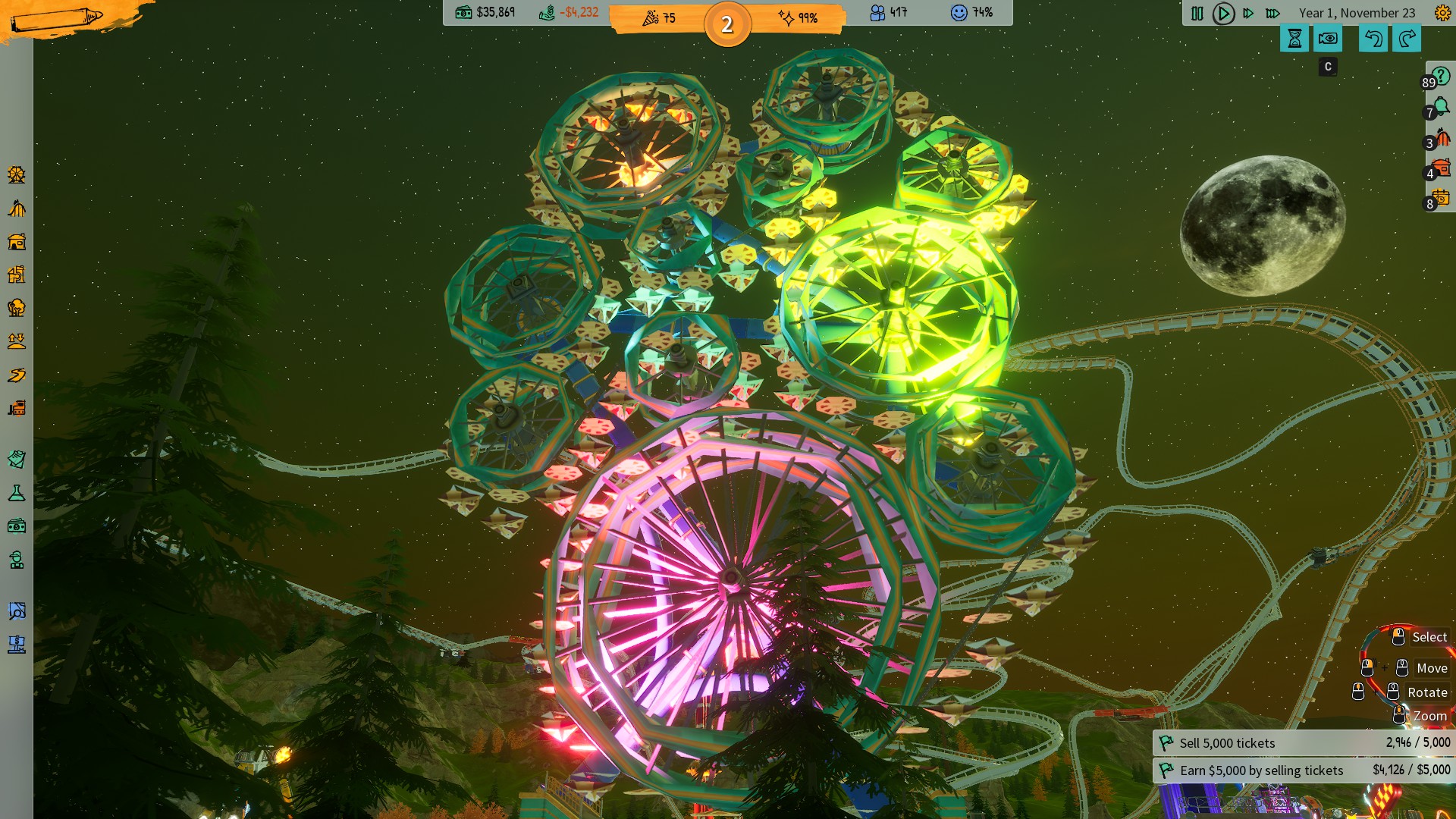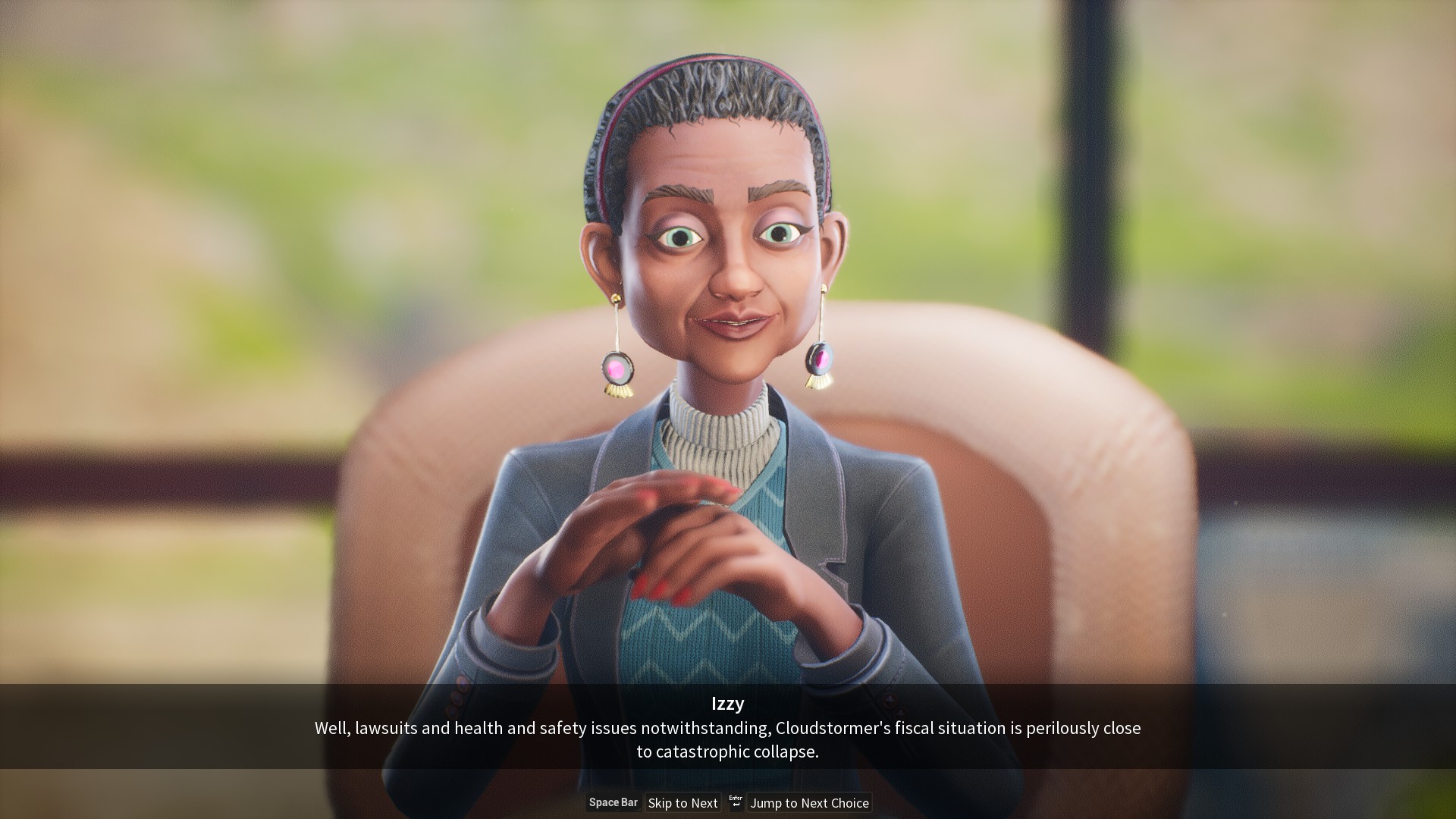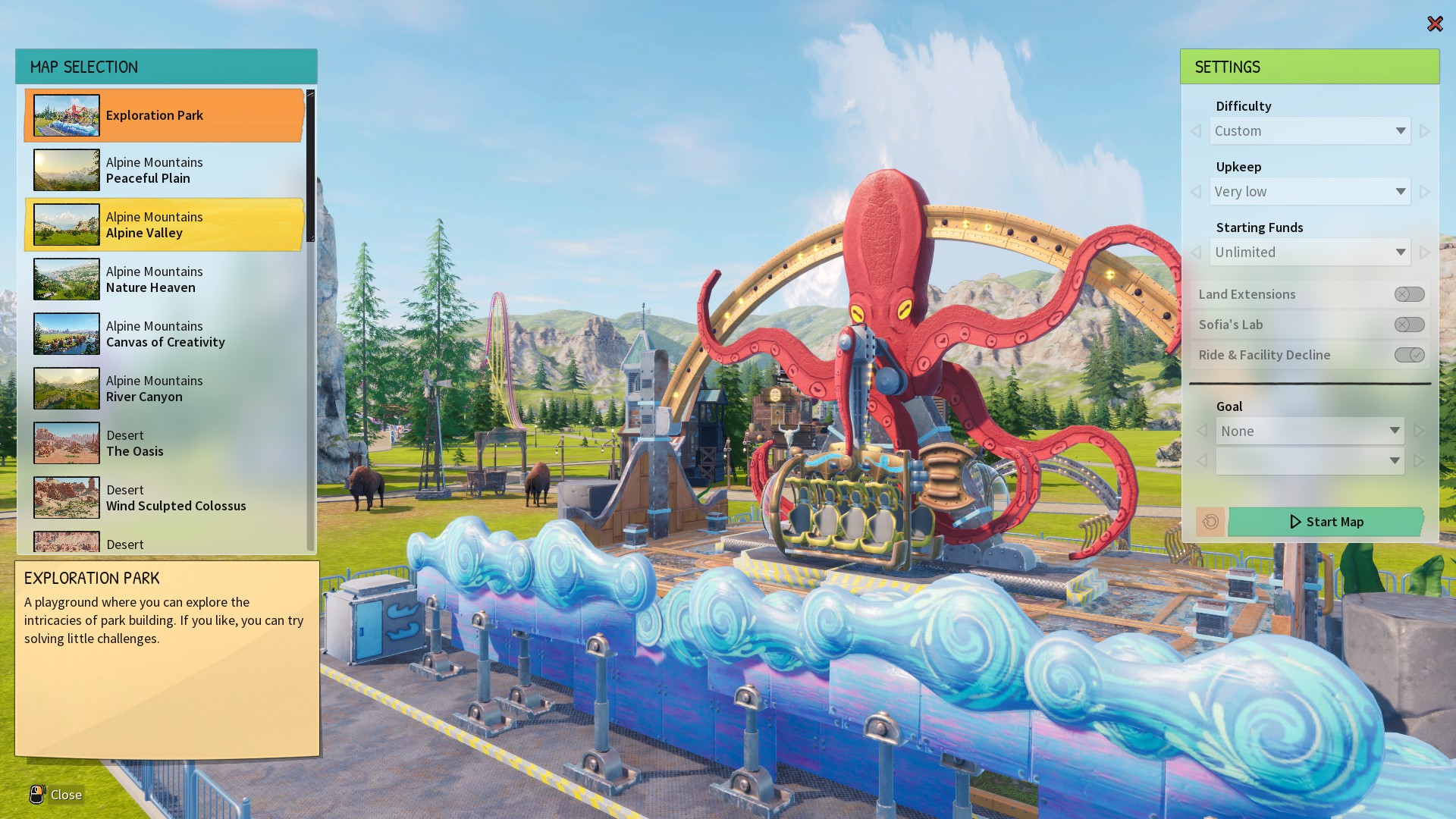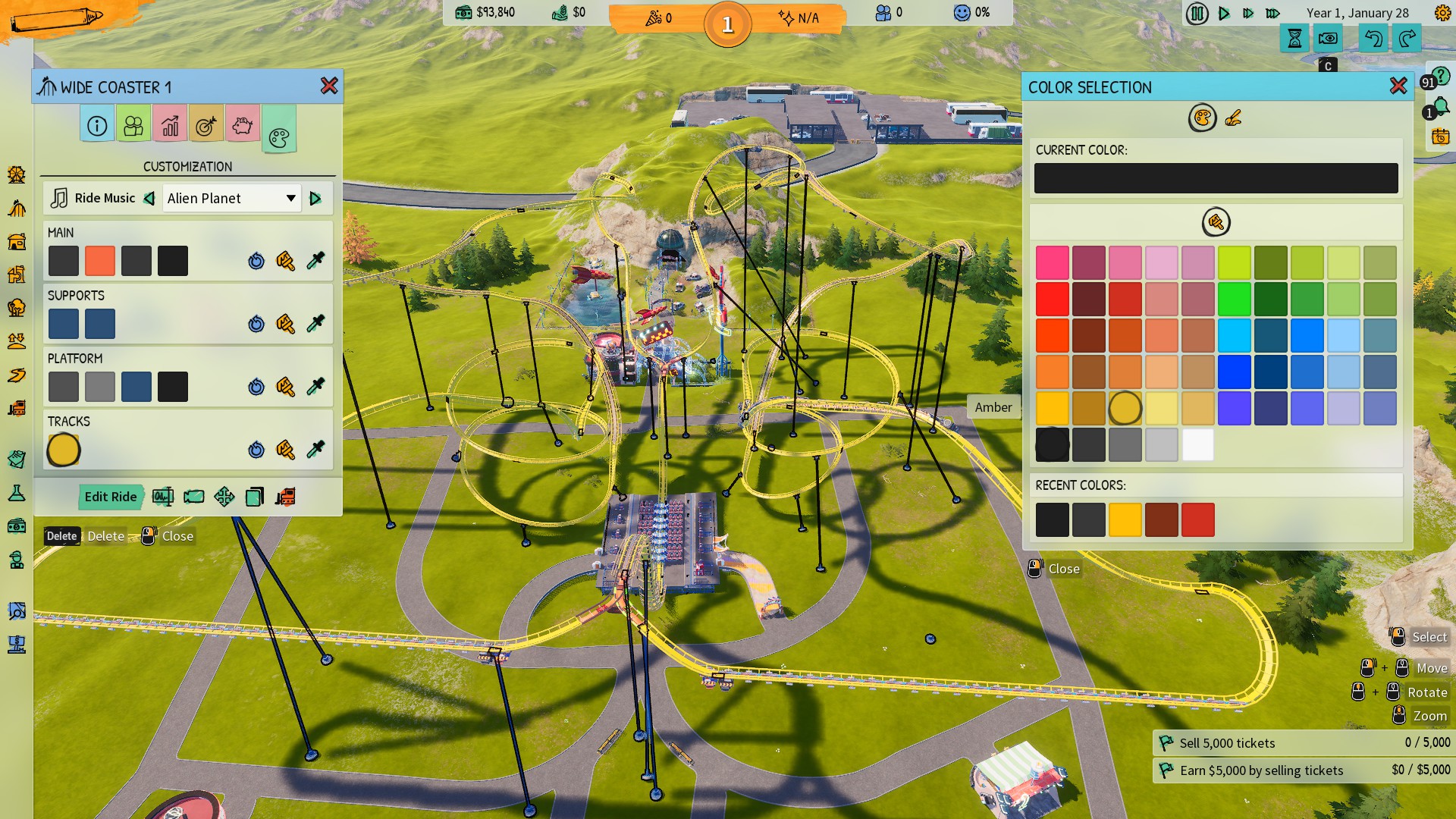Our Verdict
This throwback management sim's incredible building tools are let down by a limp campaign and a serious lack of depth.
PC Gamer's got your back
What is it? A theme park sim in the style of classics like Rollercoaster Tycoon.
Release date June 15, 2023
Expect to pay $50 / £40
Developer Limbic Entertainment
Publisher Bandai Namco
Reviewed on Ryzen 9 5900X, RTX 4080, 64GB RAM
Steam Deck N/A
Link Official site
Park Beyond isn't a very subtle game, both in the sense that it's loud and bombastic, and that it's not exactly hiding which other games it's been influenced by. Sometimes though, that's ok—hundreds of games have tried to ride the coattails of Fortnite or Call of Duty, but there aren't that many trying to emulate 2000s-era management sims like Rollercoaster Tycoon.
Much as I did in other sims 20 years ago (oh God, did SimCity 2000 really come out in 1993?), I initially decided to skip the campaign in Park Beyond and jump right into sandbox mode. At this point the game lightly suggested that I should at least give the tutorial a go before getting started. I relented and, thankfully, the tutorial was succinct and relatively easy to digest. To Park Beyond's credit, after just a brief five minute talking to, I felt well-equipped enough to tackle building a theme park of my own.
After messing around for a couple of hours in sandbox mode, I looped back around and started the campaign mode properly. It didn't take me long to realise that the bulk of what was covered in the tutorial is simply stretched out and dumbed down even further for the campaign, admittedly alongside some new information regarding the park management mechanics. Although the campaign does feature fully-voiced cutscenes and a (pretty limp) attempt at a story, it never stops feeling like one long tutorial. I got bored of working my way through it and kept stopping to jump back into sandbox mode, even though it's only a few hours long all told.
Considering how straightforward and to the point the actual tutorial is, I would recommend just ignoring the campaign and saving yourself the trouble of having to spend any time with its waxwork-like characters. They give off this unsettling, uncanny-valley vibe, and their constant attempts at humour are a lot more miss than hit. It's best to just bypass them completely and get right into the meat of Park Beyond: building huge, absurd rollercoasters.
Creating your own elaborate rides is undoubtedly the most fun part of Park Beyond. After spending a little while wrestling with the physics engine and the initially unwieldy controls, I found the tools for laying out my park and customising rollercoasters to be surprisingly intuitive and, importantly, unrestrctive. You're given pretty remarkable freedom to create what you want, although it does have to physically work in the end. That can take a bit of testing and experimentation to achieve, especially if like me you enjoy more unlikely designs, but Park Beyond does help you out with clear visual indicators of what's working and what isn't. The node system lets you fix your rides by segmenting off and manipulating parts of the track that you've already placed, and it's ultimately pretty lenient when it comes to letting you create physics-defying rides.
Impossification is a cute little mechanic that lets you channel visitor happiness into buffing up your rides and facilities, by making them grander and more fantastical.
There's also a pretty large selection of shops, restaurants, scenery, and pre-built rides that you can use to bulk out your park, available in a variety of colours to match your park, and upgradable through the use of “impossifying”. Impossification is a cute little mechanic that lets you channel visitor happiness into buffing up your rides and facilities, by making them grander and more fantastical. It's most noticeable with the rides, which progress through two levels of elaborate and, yes, impossible changes until they're rollercoasters out of your most enthusiastic daydreams—or nightmares, depending on your disposition—that give your customers whole new experiences. Impossifying shops and staff members is less exciting mechanically, mostly only bumping up your profit margins, but at least still comes with fun visual changes, such as your entertainment team becoming Pac-Man ghosts.
The terrain manipulation options are pleasing vast too, allowing you to smooth over surfaces, create large bodies of water, and chisel out deep canyons with no fuss. A lot of the more impressive rollercoaster add-ons want you to take advantage of your free reign over the terrain too, letting you shoot passengers over lakes, tunnel underground, or even loop around and through man-made gaps in the environment. Pair this with the freeform nature of the track building and the large toybox of items at your disposal, and no two parks you create will ever look the same. It's a seriously impressive set of tools.
Keep up to date with the most important stories and the best deals, as picked by the PC Gamer team.
Jumping the park
I tested Park Beyond on two different builds, and the weakest of the two (i7-7820X, RTX 2060 SUPER, 16GB RAM) should have been able to comfortably handle the game on it's recommended settings, given the system requirements (i7-7700K, GTX 970, 12GB RAM). I did unfortunately run into some pretty heavy load times, and some noticeable slowdown when my parks started to get a little too big. The better hardware I tested the game on did perform smoothly, but I'm sure most people aren't gonna nip down the shop to buy an RTX 4080 just so they can get Park Beyond to run properly, especially given the minimum specs give no indication it should be necessary.
Worse still, regardless of which build I played on, I always ran into the same severe bugs. I had frequent crashes to desktop with no error messages, music in missions and sandbox mode had a terrible habit of infinitely stuttering, and there was a lot of texture clipping when using optional camera modes. A lot of missions also flat out refused to progress, even when meeting their requirements—like placing rides in certain places, or selling a specific amount of one item in a shop—giving me no option but to reset and try my luck again. Most aggravatingly, occasionally the quick-select options in the management menu would permanently bug out and always teleport me to a completely wrong shop or staff member, which meant I instead had to spend God knows how long manually fishing one person out of a sea of customers just to change their costume.
LinkedIn park
Any time you're not actively building coasters or rearranging your layout, there's precious little of interest to engage you.
I'm also not entirely sure if some of the criteria that denote your park's success are bugged, or the result of opaque design decisions. The second time I tried to create a park in sandbox mode, I gave myself a huge starting budget and built several expensive, ridiculously large custom rollercoasters. I made sure to still follow the tutorial's advice and build different flat rides, shops, toilets, staff rooms, and lovingly decorated benches in a bid to keep customers happy, but for some reason nobody wanted to go on the custom rides I'd built—even though they were impossified and seemingly had good reviews. I tried reducing the ride price incrementally until eventually giving up and making them free, but no matter what they were still listed as “abandoned”. Other sandbox playthroughs I attempted didn't run into this problem—was it because I spent too much too quickly, or was it just a rare bug? I've no clue—which after the time I invested in my creations is frustrating.
It was especially odd because normally making your park a success in Park Beyond is, if anything, much too simple and easy. Even on higher difficulty levels, the game only ever demands you give your customers access to basic necessities, hire the correct amount of staff, and occasionally use the "heat map" function to target any unhygienic or underdeveloped parts of your park. All of it's so straightforward to keep ticking along that it's mind-numbing. Any time you're not actively building coasters or rearranging your layout, there's precious little of interest to engage you.
Park Beyond feels like a difficult game to critique—if you'll permit me one cheesy metaphor, its main attraction is impressive, but it's lacking in amenities. The system of building and customising your park is really impressive—one of the best such systems I've seen in a sim—but all the actual management is so under-baked as to feel tacked on, and without a robust campaign to challenge you, the experience feels thin.
If all you want to do is hop straight into sandbox mode, give yourself unlimited funds, and build an unfeasibly large rollercoaster, Park Beyond's worth picking up… after a few performance patches, and probably on sale. If you're looking for any depth beyond that however, and certainly if you're the type of person more interested in business management than loop-de-loop physics, I can't recommend it at all.
I've been trying to avoid harping on a comparison between Park Beyond and its obvious inspiration Rollercoaster Tycoon, but at a certain point you have to put them side by side. What you realise is how little Park Beyond has evolved the core formula, leaving its management systems feeling archaic. The creativity and freedom in creating rides and designing your park is lightyears ahead of what was possible in early sims, but the rough, buggy edges and lack of depth make even Park Beyond's strengths feel like style over substance.
This throwback management sim's incredible building tools are let down by a limp campaign and a serious lack of depth.
